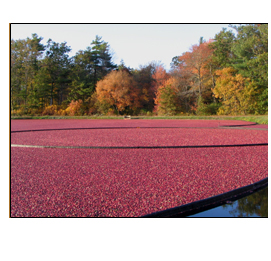 |
|
About AgComs: Overview
What is an Agricultural Commission (AgCom)?
A town agricultural commission (AgCom) is a standing committee of town
government, created through a vote of Town Meeting and appointed by the
Board of Selectmen or governing body of the town. AgComs represent the
farming community, encourage the pursuit of agriculture, promote
agricultural economic development and protect farmlands and farm
businesses, and preserve, revitalize and sustain agricultural businesses
and land. In some communities they focus on farmland preservation
efforts, while in others they review regulatory proposals developed by
other town boards (planning board, board of health, conservation
commission, etc), or provide marketing coordination to assist all farms
in town. Others have played key roles in mediating farmer/neighbor
disputes, or simply providing referrals for farmers needing better
information. By working within town government through an AgCom,
farmers enhance their credibility, and are viewed as part of the
problem-solving team.
What does an AgCom do?
- Serves as a local voice advocating for farmers, farm businesses and farm interests
- Provides visibility for farming
- Works with other town boards about issues facing the town that affect agriculture
- Helps resolve farm related problems or conflicts
- Protects farmland and natural resources
Who can start an AgCom?
Any local resident or group concerned about their communities’ farming,
farm businesses, growth, rural character, open space, etc. can start
organizing support for an AgCom.
Why are town AgComs formed?
Many towns trying to balance growth and quality of life issues are
creating AgComs. The intent of an AgCom is simple: protect
agricultural lands, preserve rural character, provide a voice for
farmers, and encourage agricultural based businesses.
Who can serve on an AgCom?
Anyone who is a resident of the town is eligible to sit on a town board
or commission. However, the by-law created and passed by the town
determines the number of members and composition of the
commission. In towns with existing AgComs there are several types
of members-voting, alternate, and advisory. Usually, the voting
members are farmers. Each town should decide what type of
membership and qualifications are appropriate for their community.
Does an AgCom cost the town money?
Towns provide support for all committees-each town should decide what is
an appropriate budget for the AgCom. Existing AgCom budgets range
from $0 to $1,000 per year.
Are AgComs regulatory?
Unlike some other town committees, AgComs do not operate under any
regulatory authority from the Commonwealth. While town
conservation commissions implement the State Wetlands Protection Act and
planning boards enforce the local zoning code, AgComs are created at
Town Meeting to represent farming interests in the town-but they do not
have any legal mandate or enforcement authority.
What are AgComs doing in Massachusetts?
- Adopting local right-to-farm by-laws
- Raising monies for farmland protection and economic development
- Starting local farmer’s markets
- Providing mediation and conflict resolution on farm related disputes within town
- Collaborating with other town boards on development proposals
- Educating town residents about the value of agriculture in the community
- Holding educational workshops on intergenerational transfer of property, Chapter 61 lands, farm
viability, and Agricultural Preservation Restrictions
- Obtaining technical assistance on
nonpoint source pollution, conservation farm planning, manure
management, environmental stewardship
|
|
